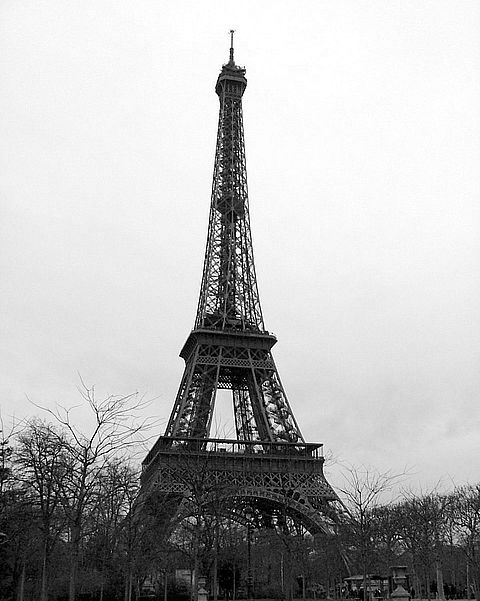He came from Bohemia, came from a good family, and lived a life with numerous identities. Victor Lustig, a globetrotter and one of the most famous con artists and gamblers in criminal history. His greatest coup: He sold the Eiffel Tower in Paris.
He had already served several prison sentences at a young age. Born around 1890, he was briefly imprisoned in places like Prague, Vienna, and Zurich. The man who occasionally called himself Count Victor Lustig – a fine title that impresses and offers access to wealthy society – always presented himself as a charming, open-minded, and credible gentleman. On long ship journeys, he used tricks to swindle his way to profits. At horse racetracks, he pretended to already know the results as an insider – and made off with the stakes entrusted to him. His high lifestyle, however, did not allow him any peace. He quickly amassed the money through swindles, but also quickly spent it in high society and luxury hotels. A major coup was needed.
 A newspaper journalist's commentary at least gave him a good idea. While the Eiffel Tower in Paris proved to be a popular monument and landmark in the 1920s, it was also expensive to maintain. A newspaper article appeared openly questioning whether the Eiffel Tower should be sold. Years earlier, demolition had been openly discussed. The perfect template for someone like Victor Lustig. What followed was one of the most bizarre fraud cases in history. When various rusty patches appeared on the Parisian landmark in 1925, the monument once again became a topic of discussion. Lustig wrote to several regional scrap dealers using official government paper, inviting them to "bargain deals under the table." Whether these were genuine official papers is historically disputed. According to some sources, they were stolen original papers; according to others, they were good forgeries. However, it had the desired effect and lured the scrap metal dealers to a prestigious Parisian hotel, a meeting place for businessmen and diplomats. All possible cover-ups were considered. The city would try to avoid a public scandal with the "night and fog operation." The eloquent crook Victor Lustig, who posed as a civil servant during business negotiations, actually managed to convince one of the businessmen. He admitted to wanting to favor the dealer in return for a bribe. He presented himself in private conversations as a corrupt Parisian official. That was convincing! Lustig shamelessly made off after the deal with a bribe of approximately 1.2 million francs. Of course, the scrap dealer learned shortly afterwards that he had been cheated and that the landmark was never intended for sale.
A newspaper journalist's commentary at least gave him a good idea. While the Eiffel Tower in Paris proved to be a popular monument and landmark in the 1920s, it was also expensive to maintain. A newspaper article appeared openly questioning whether the Eiffel Tower should be sold. Years earlier, demolition had been openly discussed. The perfect template for someone like Victor Lustig. What followed was one of the most bizarre fraud cases in history. When various rusty patches appeared on the Parisian landmark in 1925, the monument once again became a topic of discussion. Lustig wrote to several regional scrap dealers using official government paper, inviting them to "bargain deals under the table." Whether these were genuine official papers is historically disputed. According to some sources, they were stolen original papers; according to others, they were good forgeries. However, it had the desired effect and lured the scrap metal dealers to a prestigious Parisian hotel, a meeting place for businessmen and diplomats. All possible cover-ups were considered. The city would try to avoid a public scandal with the "night and fog operation." The eloquent crook Victor Lustig, who posed as a civil servant during business negotiations, actually managed to convince one of the businessmen. He admitted to wanting to favor the dealer in return for a bribe. He presented himself in private conversations as a corrupt Parisian official. That was convincing! Lustig shamelessly made off after the deal with a bribe of approximately 1.2 million francs. Of course, the scrap dealer learned shortly afterwards that he had been cheated and that the landmark was never intended for sale.
Unscrupulously, Victor Lustig later returned to Paris and even tried the same fraud a second time. This failed, and the crook was forced to flee to the USA.
Most recently, for the production and distribution of counterfeit money, Victor Lustig served a long prison sentence on the prison island of Alcatraz off San Francisco, USA. He died of an infection in this prison in 1947.
---
TV Documentation "The Lost Ones: Der Mann, der den Eiffelturm verkaufte." ARTE Mediathek (retrieved 06 12 2025)
Esser, Fröhlich, Weber: Der Mann, der den Eiffelturm verkaufte: Graf Victor Lustig. Verlag Campire Media (2010).
Magazine Welt der Wunder in Article:"Der Mann, der den Eiffelturm zweimal verkaufte", Edition 1/25, S. 66-69.
